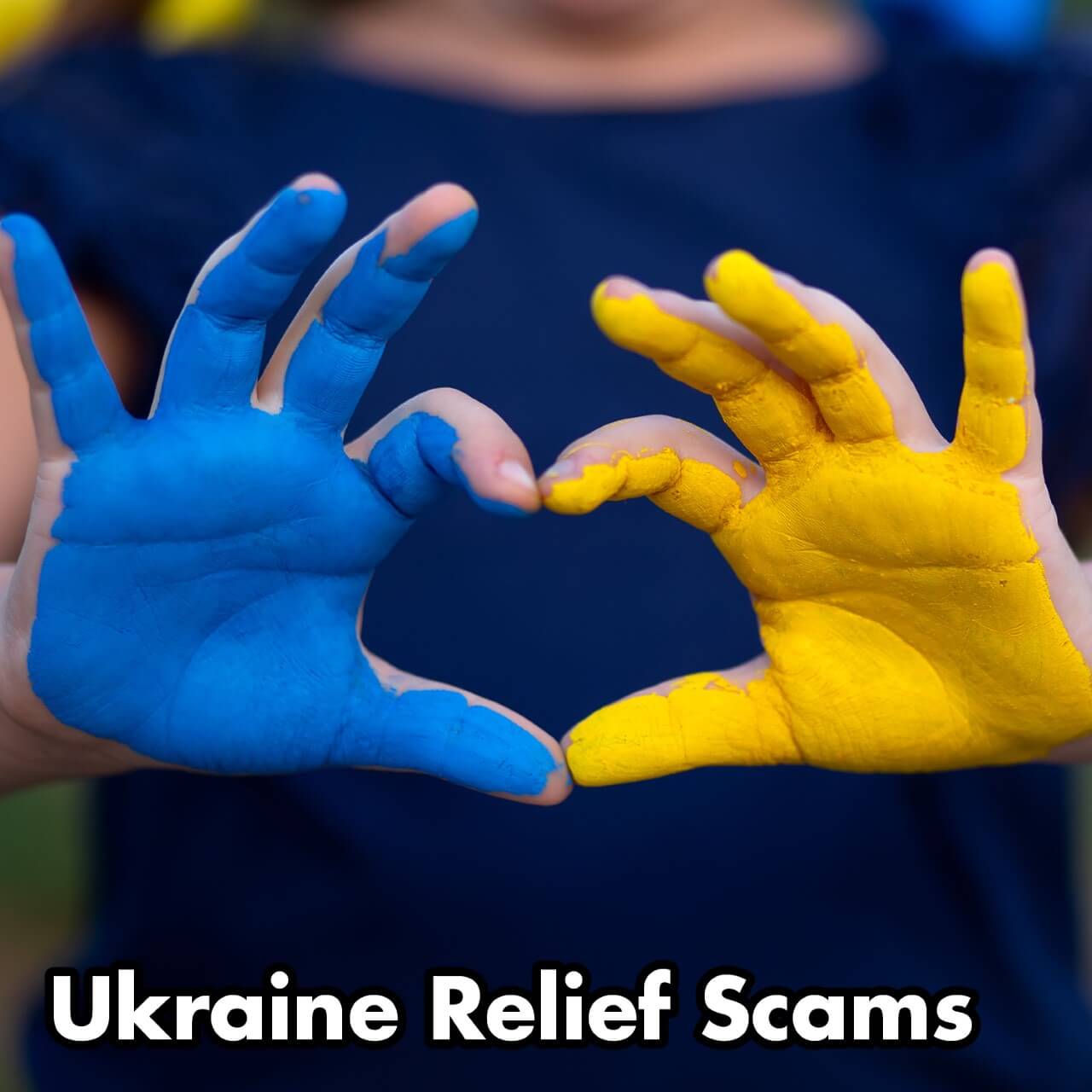
Ukraine Relief Scams
Wednesday, Jun 1 2022
As the military conflict between Russia and Ukraine continues to intensify, the humanitarian crisis is reaching alarming proportions – and people want to help. Individuals across the globe are looking for ways to help Ukrainians during their wartime struggles, primarily by donating money and supplies to charitable funds established for helping Ukraine. Unfortunately, even in times of crisis, scammers are trying to con kind people out of their money. Here’s what you need to know about these scams and how to avoid them.
How the scams play out
Like all charity scams, Ukraine relief scams convince potential donors that they are legitimate charity funds. They promise to send donated funds to Ukraine to help pay for shelter, food, and supplies for refugees. They use various tactics, including phone calls, emails, banner ads on popular sites, and social media messages, to seek donations. To the untrained eye, the solicitations look completely legitimate and often spoof numbers and sites of authentic charities. However, if the target makes a donation, their money never reaches Ukrainian refugees. Instead, it makes its way to the scammer, where it can be used for any number of other reasons.
Red flags
Charity scams can be challenging to spot, but a bit of information can go a long way in helping you identify these scams.
First, be wary of any organization that markets itself too aggressively. If you keep running into the same solicitations online and via text message or phone calls, it may be a scam. Similarly, if the organization pressures you to donate immediately over the phone, or by clicking on an embedded link, it’s likely a scam.
Next, look out for typos and spelling errors in any marketing material that represents the organization. If the ad is poorly written, it’s likely the work of scammers.
Finally, be wary of payment methods that may be required for donating to this particular cause. Can you choose how to pay? Or does the “charity” require you to make your donation with a prepaid debit card or wire transfer? If the alleged organization insists on a specific payment method, particularly a method that offers little in the way of purchase protection, you’re likely looking at a scam.
How to avoid getting scammed
Follow these tips to avoid falling victim to a Ukraine relief (or similar) scam:
-
Never click on a link or email attachment to donate online.
-
Never share your Social Security number, credit card or debit card number, or any other identifying information online, or by phone with an unverified contact.
-
Lookup a charity you’d like to donate to on a charity-vetting site like BBB Wise Giving Alliance, Charity Navigator or CharityWatch.
-
Read online reviews on any fund to which you’d like to make a donation.
-
Ask the organization’s representative how the funds will be used. An authentic charity will be able to provide you with a satisfactory answer.
-
After you’ve verified that a relief fund is legit, contact them on your own to make a donation.
-
Make your charitable donation via credit card for the ultimate in purchase protection. Never make a donation through a prepaid debit card or gift card.
Check your credit card and checking account statements regularly for suspicious purchases, unauthorized transactions, and other signs of fraud.
How can I help Ukraine?
If you’re looking for a direct way to help your funds reach Ukraine, here are some verified charities you can choose:
- GlobalGiving
- Save the Children
- Center for Disaster Philanthropy
- National Bank of Ukraine
- Come Back Alive
- Razom for Ukraine
If you’ve been scammed
If you believe you’ve been targeted by a Ukraine relief scam, it’s important to take the appropriate steps as soon as possible to mitigate the damage. Alert the FTC immediately. If your credit card account has been compromised, you may want to place a fraud alert on your credit report. Consider a credit freeze, too. If you’ve paid with a gift card, contact the company to ask about a possible refund. Finally, be sure to tell your friends about the scam so they know to be alert as well.
Ukraine needs our support, but scammers are intent on taking advantage of the generosity that’s pouring in from around the globe. Follow the tips outlined here to ensure that your money reaches the right hands.




